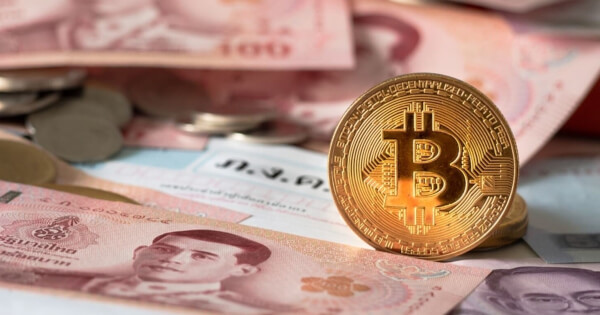Thai Regulator Warns Against Unlicensed Crypto Firms as Cryptocurrency Trading Ramps Up
Nicholas Otieno Jan 05, 2021 05:00
As cryptocurrency trading ramps up in the region, the Securities and Exchange Commission of Thailand (SEC) warns investors against unregulated crypto players.

The Securities and Exchange Commission of Thailand (SEC) warns investors to closely monitor investments on crypto assets because of risks associated with high volatility, thus highlighting the need for investors to only invest and trade with market players regulated by the agency.

Ruenvadee Suwanmongkol, SEC secretary-general said:
“Cryptocurrencies are traded around the world just like gold. Investors must closely follow regulations as there are many digital exchanges worldwide and there is a risk as we can only regulate players we have authorized."
In Thailand, trading for digital assets and cryptos is regulated by the Ministry of Finance and the SEC.
The regulator has currently authorized one digital asset dealer, five digital assets brokers, eight digital asset exchanges, and four initial coin offering portals.
Suwanmongkol further mentioned that authorized digital exchanges are expected to maintain capital reserves as the regulations dictate.
The agency has taken public legal action against fraudulent cases associated with cryptocurrencies.
Meanwhile, Jirayut Srupsrisopa, founder and CEO at Bitkub, Thailand’s leading cryptocurrency exchange with 95% market share, revealed that interests among investors have significantly risen in the country. He said that the exchange’s trading volume broke 2 billion Thai baht (US$ 67 million) for the first time within 24 hours after Bitcoin surpassed 1 million baht (US$33,000).
Srupsrisopa further stated that over Christmas and New Year festivities, 20,000 accounts were opened in Bitkub on a single and another 7,000 accounts created a previous day, thus driving total accounts to 600,000. He said that a total of 40,000 new accounts were opened on the exchange on 3 January this year.
However, crypto experts advise investors with a moderate risk appetite to rebalance their portfolios by allocating no more than 10% of their assets to digital assets.
Nuttachart Mekmasin, an analyst from Trinity Securities, said:
“We still recommend investors maintain an alternative investment portion of 10%, 5% for cryptocurrencies, and 5% for gold."
He advised that in the first half of 2021, people can allocate excess weight to growth stocks and then relocate to value stocks when the global economy indicates recovery signs in the second half.
Cryptocurrency Serving as A Safe-Haven
Bitcoin, the world’s leading cryptocurrency, has trekked a transformational path. One of the founding purposes of Bitcoin and other altcoins was to serve as a safe-haven during times of economic crisis. The coronavirus pandemic is the real test during the current global uncertainty. Thailand has embraced and legalized cryptocurrencies, and currently, the Bank of Thailand, is working on its plans to issue a Central Bank Digital Currency (CBDC) to enable better efficiency of digital payment services.
Meanwhile, the use of Bitcoin has increased rapidly and unexpectedly in the country. People are rushing to invest in cryptocurrency as they view Bitcoin as a safe-haven (an alternative asset to protect their purchasing power from more dollars injected into the economy). Young people have formed the driving growth of cryptocurrency in the country. Millennials (aged from 26-40 years) constitute 57% of the consumers buying cryptocurrencies in Thailand.
Image source: Shutterstock.jpg)